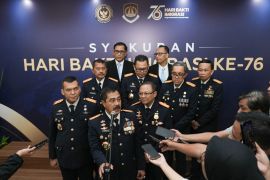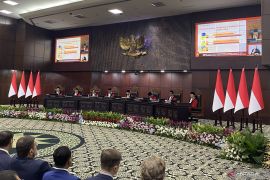"The article on adultery in the new Criminal Code that will take effect three years later is the Absolute Complaint Offense. This means that only the husband or wife (for those who are married) or parents or children (for those who are not married) can make complaints," he explained in a statement received here on Thursday.
According to Aries, other parties cannot report the complaint or even 'playing as a judge'.
"So there will be no legal process without complaints from the rightful party, who is directly harmed," he further said.
A clarification is needed to be made following the rise in misleading and false news regarding the adultery article, which harms Indonesia's tourism and investment sectors, he added.
He noted that there are no substantive changes in the article compared to Article 284 of the old criminal code.
The only difference, he added, is in the addition of parties who have the right to file complaints, and even if they are proven true, there are alternative sanctions of no more than Rp10 million.
"So there is really nothing to worry about. If tourists and investors can be comfortable in Indonesia all this time, then this condition will not change either," he said.
The spokesman added that it is appropriate for Indonesia to pay respect to marital values in the country through the article, as long as the regulation does not violate the private space of people, including tourists and investors.
Related news: Parliament's plenary session passes Criminal Code Bill into law
He highlighted that the decision to file a complaint is in the party who is entitled to it.
Apart from that, the new criminal code has also never given additional administrative requirements for tourism players to question people about their marital status.
Aries affirmed that people's privacy is still guaranteed by law in Indonesia without reducing respect for the values that the country has.
To this end, foreign tourists and investors do not need to worry about visiting and investing in Indonesia, he said.
Earlier on Tuesday (Dec 6), the House of Representatives (DPR) passed the Criminal Code Bill into law during a plenary session of the parliament. At the session chaired by DPR deputy speaker Sufmi Dasco Ahmad, legislators unanimously approved the bill's passage.
Related news: Govt lists three urgent reasons for Draft Criminal Code ratification
Reporter: Raka Adji
Editor: Bayu Prasetyo
Copyright © ANTARA 2022











